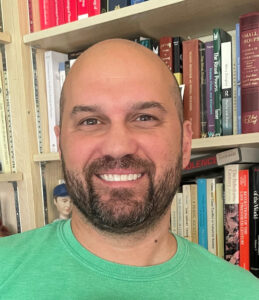Tisha X: I am many things, for the purposes of this project I wish to introduce myself as someone who is uninterested in life, someone who has been held on an involuntary psychiatric hold at the age of seventeen, someone who has experienced being pitied and feared by those that knew of my Darwinian failure to want to end my God given life. I also wish to introduce myself as someone who holds anger towards the therapeutic world, as a client and as a therapist, for not being allowed to explore life and death in a way that is true to my experiences without having to fear the repercussions. This muted experience translates into a silent rage that makes me want to run as far away from the academic as I can–while at the same time acknowledging that it is a world I choose to belong to everyday as an associate of marriage and family therapy. So why am I here? Well because who else needs to hear this if not the people sitting across from people, who like me, are calling into question their desire to take-on another shift in the 9 to 5 that is life. To my communities I am also a daughter of immigrants, a granddaughter of the clouds–which speaks to my grandparents indigenous connections to the Zapoteco people of México. A Spanglish, Spanish, and English speaking Xicana (USA born Mexican women), a non-heterosexual cis-woman, a lover of stories, a curious thinker, a disliker of unresolved questions, to my friends a contradictory gemini, and someone whose death will have unkind ripple effects on those she shared her life with.
Candea Mosley: I received my M.S. in Counseling with an emphasis in Marriage and Family Therapy at San Diego State University. I received training at a local non-profit agency that serves Middle Eastern immigrants and refugees who have experienced trauma and domestic violence. I am currently a Registered Associate Marriage and Family Therapist (AMFT #120796) working in private practice. I also teach in the Counseling and Social Change minor at San Diego State. I am a Black-American woman who is a wife, mom, partner, friend, grandparent, and so many other things to different people. My approach to therapy is collaborative, fun, and engaging, with a genuine interest in helping people live the life they prefer. I do this through a poststructuralist lens while using solution-focused, collaborative, and narrative frameworks to underpin my work. It is my honor to participate in meaningful conversations with clients while meeting them separately from their problems. My work does not shy away from challenging discussions surrounding race, suicide, homicide, sexual assault, or abuse. When these “hard” topics come up, we (therapists) must check all the boxes due to the bureaucracy in the work. These moments are hard to navigate relationally and sometimes can take the client's autonomy and voices away as we (therapists) are now both attending to the gaze of the systems, which shifts us away from being near the client’s experience. My hopes is to begin conversations that destigmatize and decriminalize conversations regarding suicidal ideations that allows for me to do work with clients without the fear of the gaze. However, even with the gaze, my ethic is to always privilege clients’ values, strengths, skill sets, and resources outside the dominant stories that may impact their lives.
marcela polanco: I was raised in unceded and exploited territories of the Muisca peoples in the Nation-State Colombia. Colonially speaking, my flesh is racially marked and ranked as a brown cis woman, middle class, heterosexual, able bodied, with no religious affiliations. My ancestry is Southern European by colonization; as well as Muisca, Pijao, and Black. I speak two imperial languages, Español Colombiano and immigrant English as well as borderland Spanglish. I live an advantageous urban life in the unceded territories of the Kumeyaay peoples in San Diego, California, a border city connected to Tijuana, México. I actively participate in the exploitation and consumption of the earth. My earnings come from institutional systems of oppression dedicated to the legitimation of the production of knowledge on suicide in standard English, through patriarchal science, and racialized and gendered professional education. I profit from my scholarly work on decoloniality and social justice that seeks to question and delink from the very same racists and capitalist’s systems that kill and my livelihood depends on. I am a faculty member of the family therapy program at San Diego State University.
Inspired by the "Statement of Ethics" (2019) of the Critical Suicide Studies network, we, Tisha and Candea utilize our lived experiences with suicidality and as marriage and family therapists as our gateway to consider the possibilities of what suicide is and what our responses to it could be outside of academic borders. We will engage in a conversation about life and death outside the walls of what we experience as academic fear. This conversation is a window into one of the many conversations we have shared about life and death on Candea’s couch. We invite you to join us with the hope of making palpable a sense of normality while discussing the topic of wanting to end one's life. A normality made possible through the delinking of the pathological, the use of humor, fearless curiosity, unedited thoughts, and an interest in exploring possibilities outside the borders of research-based best-practices. Additionally, we seek to question how we as therapists conceptualize our role and responsibilities to the people sitting across from us outside the borders of pathology. Following, I, marcela, will accompany Tisha and Candea’s conversation as an accomplice of the colonial, hence violent systems that produce and distribute “the suicidal” category.


 Dr. Anna S. Mueller, PhD, is the Luther Dana Waterman Associate Professor in the Department of Sociology and the Senior Research Program Leader for Mental Illness, Suicide & Addiction at the Irsay Institute at Indiana University Bloomington. She is a leading expert on youth suicide and suicide prevention/postvention in schools and has won numerous awards for her contributions to suicide prevention science, including the Edwin Shneidman Award from the American Association of Suicidology. She is co-author of the book Life under Pressure: The Social Roots of Youth Suicide and What to Do About Them (2024) and principal investigator on the Social Worlds & Youth Well-Being Study and the Connect to Care in Schools Study. As a community-engaged researcher, Mueller is passionate about collaborating with schools, families, and teens to translate suicide prevention science into policies that work.
Dr. Anna S. Mueller, PhD, is the Luther Dana Waterman Associate Professor in the Department of Sociology and the Senior Research Program Leader for Mental Illness, Suicide & Addiction at the Irsay Institute at Indiana University Bloomington. She is a leading expert on youth suicide and suicide prevention/postvention in schools and has won numerous awards for her contributions to suicide prevention science, including the Edwin Shneidman Award from the American Association of Suicidology. She is co-author of the book Life under Pressure: The Social Roots of Youth Suicide and What to Do About Them (2024) and principal investigator on the Social Worlds & Youth Well-Being Study and the Connect to Care in Schools Study. As a community-engaged researcher, Mueller is passionate about collaborating with schools, families, and teens to translate suicide prevention science into policies that work. Dr. Seth Abrutyn is Professor of Sociology at the University of British Columbia, where he studies Sociological Theory, Youth Suicide and Mental Health, Emotions, Social Psychology, and Culture. His theoretical and empirical interests center on how and why social environments shape behavior and motivation. His work can be read in the American Sociological Review, Sociological Theory, Sociological Forum, and Social Forces, among other outlets. Recently, he and his co-author Anna Mueller recently published a book on the social roots of adolescent suicide, Life Under Pressure, that Malcolm Gladwell described as “a devastating work of scholarship.” In addition, he is the editor of Springer’s Handbook of Contemporary Sociological Theory and co-editor of Springer’s Handbook of Classical Sociological Theory, and is currently co-editor of the American Sociological Association's public-facing journal, Contexts.
Dr. Seth Abrutyn is Professor of Sociology at the University of British Columbia, where he studies Sociological Theory, Youth Suicide and Mental Health, Emotions, Social Psychology, and Culture. His theoretical and empirical interests center on how and why social environments shape behavior and motivation. His work can be read in the American Sociological Review, Sociological Theory, Sociological Forum, and Social Forces, among other outlets. Recently, he and his co-author Anna Mueller recently published a book on the social roots of adolescent suicide, Life Under Pressure, that Malcolm Gladwell described as “a devastating work of scholarship.” In addition, he is the editor of Springer’s Handbook of Contemporary Sociological Theory and co-editor of Springer’s Handbook of Classical Sociological Theory, and is currently co-editor of the American Sociological Association's public-facing journal, Contexts.